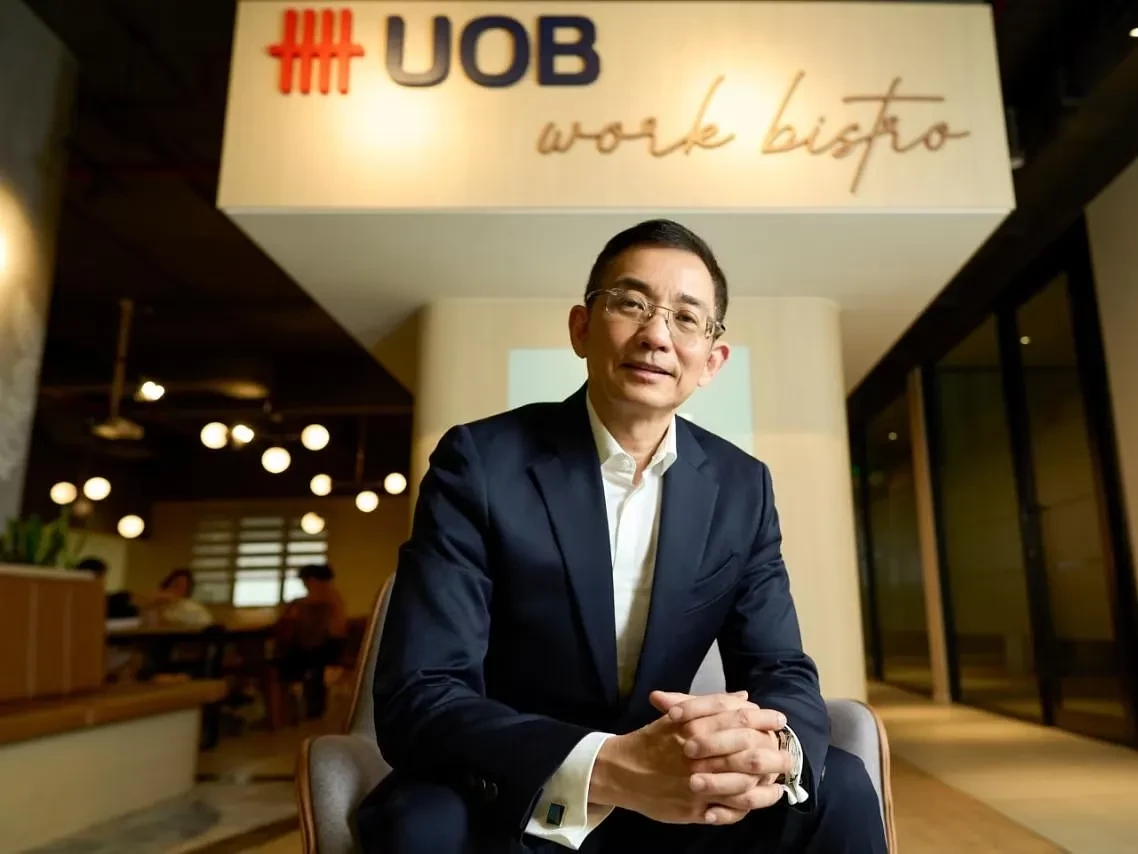UOB FinLab to help 5,000 Vietnam SMEs ramp up digital transformation

UOB’s launch of a new innovation accelerator in Vietnam is a “strategic expansion” by the bank to enhance its regional connectivity, said Victor Ngo, the chief executive officer of UOB Vietnam.
UOB FinLab was launched in Vietnam in June this year, with the aim of fostering a network of more than 21,000 small and medium-sized enterprises (SMEs) across South-east Asia.
“(The aim is to) grant them access to digitalisation and sustainability programmes, matching of business solutions providers, mentorship and valuable resources,” said Ngo, a banking veteran of more than 30 years, in an interview with The Business Times.
“This will help businesses become more resilient, grow their business and improve productivity.”
He said that UOB FinLab has a target of engaging 5,000 businesses in Vietnam over the next three years through various digitalisation and sustainability initiatives.
Shortly after its launch, UOB FinLab held its inaugural programme in Ho Chi Minh City – the most populous city in Vietnam and the country’s economic hub – to help SMEs grow their sales through e-commerce and digital marketing.
Ngo added that UOB FinLab will also work with university professors, industry practitioners, innovation experts and tech solution providers in its programmes.
“By leveraging diverse perspectives, UOB FinLab aims to equip SMEs with the practical knowledge and strategies required to navigate the digital landscape effectively,” he said.
The setting up of UOB FinLab in Vietnam comes eight years after UOB and the Foreign Investment Agency (FIA) – a branch of Vietnam’s Ministry of Planning and Investment – signed an agreement to increase foreign direct investment and trade between Vietnam and South-east Asia.
This memorandum of understanding (MOU) has been extended twice, most recently in July this year during a regional business forum in Hanoi attended by Singapore’s Manpower Minister and Second Trade and Investment Minister Tan See Leng. The elevated MOU has a focus on areas such as new energy, semiconductors and green growth.
In the eight years since this partnership was established, UOB Vietnam has helped more than 250 companies expand into Vietnam, said Ngo.
In the coming years, Ngo expects an increase in foreign investments in sectors such as electronics, renewable energy, digital economy, high-tech agriculture and pharmaceutical health.
Landmark year
This year is a milestone for UOB in Vietnam, with the bank celebrating 30 years of operations in the country. The journey started in 1993 when it set up a representative office.
Two years later, UOB became the first Singapore bank to open a branch in Ho Chi Minh City. In its early years, UOB operated as a wholesale bank to serve large corporates.
In 2018 – a year after receiving an in-principle foreign-owned subsidiary bank license from the State Bank of Vietnam – UOB became the first Singapore bank to establish a wholly-owned subsidiary bank in Vietnam.
Ngo, who was appointed to his current role in June 2022 after a five-year stint as head of group compliance, said that being a wholly-owned subsidiary allows UOB to open more branches, increase its charter capital, launch new products and services, and acquire other banks.
Last year, UOB made headlines when it acquired Citigroup’s consumer banking business in Vietnam. The deal saw UOB doubling its retail lending and deposit balance, as well as tripling its retail customer base.
“With the combined consumer portfolios, we will accelerate the growth of our consumer franchise and solidify our position as one of the top four foreign-owned subsidiary banks in Vietnam,” said Ngo.
“More importantly, the integration will generate synergies and opportunities for our customers as they will have access to best-in-class products and services, as well as an expanded footprint and partner network.”
Giving an update on the bank’s Vietnam business, Ngo said that there has been steady growth in recent years, even through the Covid-19 pandemic.
Total assets have grown by 32 per cent in the five years from 2018 to 2022. During this period, Ngo said the bank has “always been profitable”, achieving a compound annual growth rate (CAGR) of 38 per cent in net profit before tax.
At the entity level, Ngo said UOB Vietnam wants to grow its topline by a CAGR of about 30 per cent from 2023 to 2026. It also aims to optimise the cost-to-income ratio to around 63 per cent by 2026.
“(We) have always believed in the great potential of Vietnam with favourable factors such as a strategic geographical location, stable political environment, an open-door policy and the industriousness of the people,” said Ngo.
“Vietnam also has a large and young workforce and a growing middle class, which makes it an attractive market to capture.”


